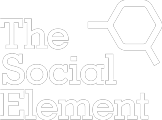Crises that happen to pharmaceutical companies tend to involve serious – or the potential for serious – health issues. These crises can’t be resolved by simply saying the right thing on social media, pharma brands need to focus on continued transparency, education and awareness campaigns to mitigate not only the impact that the crisis has on the brand, but the effect it has on its customers.
When it comes to dealing with a crisis breaking over social media, regulated industries, such as pharma, may find themselves at a loss when it comes to formulating a response. While a typical consumer facing brand usually has more freedom to communicate, pharma brands must always be aware of the strict regulations under which the industry – and its communications – operates.
Crises in pharma
While other brands may deal with a high profile crisis – such as a data breach that impacts millions of customers, or a massive recall of exploding tumble-dryers or gadgets with faulty batteries – a pharma crisis is often contentious and can involve risk to public health. The stakes are higher, but due to the strict regulations of the industry, pharma brands often worry about how, or even if, to respond.
The impact of fame
While there’s nothing stopping pharma brands from collaborating with celebrities over endorsements of their products, there’s much more for them to consider than a brand in a non-pharma industry.
For example, morning sickness drug, Diclegis faced a reprimand from the FDA after Kim Kardashian took to her social channels to promote the pills. Although the posts were quickly deleted, she then had to repost them with full disclosure and side effect warnings.
Misuse or tampering cases
Other issues that pharma brands have to face include news stories regarding accidental overdoses and tampering cases – like the Tylenol murders in the U.S., and the Nurofen Plus case in the UK.
Pharma brands do, and should, do everything within their power to educate and inform people about how to take medication correctly. Manufacturers should also do everything possible to ensure packaging is tamper-proof and impossible for children to open, but sometimes these cases will happen, and pharma brands need to know how they will respond when they do.
Given the strict communications regulations of the pharma industry, how should brands respond when a crisis breaks?
Don’t ignore social media. It can be tempting – given the complex nature of the regulations – to just pretend that social media doesn’t exist. The problem is, people will continue to use it to talk about the brand. Pharma brands need to manage their reputations on social media during the good times and nurture their community to benefit from more support and understanding when things go wrong. There’s nothing in the regulations that stops a pharma brand from showing people that they aren’t talking to a faceless organisation, but other people.
Continually communicate with stakeholders during a crisis. That means employees, customers, suppliers and anyone who may be carrying your stock. Communicate a clear and consistent message from a single point of contact. But also understand that some things can’t be solved by communication alone. Sometimes it’s best to release a statement and nothing more.
Avoid censoring criticism. Don’t try and overly censor people who post about the issue on owned spaces – like the brand’s Facebook page – they’ll just go elsewhere, and will probably be more critical of the brand. Of course, the page will still need to be moderated to ensure content remains compliant.
Be aware of tone. Urgent and sensitive issues (such as recalls or adverse side affects in a trial) need to be handled with empathy and sensitivity, not a cold, corporate tone that will probably be seen as overly defensive.
While it’s true that the pharma industry has to be extremely cautious about what it posts, or what consumers post, on its social media pages, modern crises in the sector will play out over social media. It’s unavoidable. Pharma brands must find a balance between the clarity, conciseness and speed needed in social crisis response, and maintaining adherence to regulations while under increasing pressure for answers.






Leave a Reply